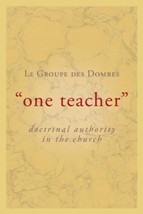- Français
- |
- Booklist
- |
- Week of Prayer
- |
- Links
- Areopagus - a forum for dialogue
- Academic journals
- Acronyms
- Bible tools
- Bibliographies
- Booksellers and publishers
- Churches
- Canadian church headquarters
- Directory of Saskatchewan churches
- Retreat centres
- Saskatchewan church and non-profit agencies
- Ecumenism.net Denominational links
- Anabaptist & Mennonite
- Anglican
- Baptist
- Evangelical
- Independent episcopal
- Lutheran
- Methodist, Wesleyan, and Holiness
- Miscellaneous
- Mormon
- Orthodox (Eastern & Oriental)
- Para-church ministries
- Pentecostal / charismatic
- Presbyterian & Reformed
- Quaker (Society of Friends)
- Roman & Eastern Catholic
- United and uniting
- Documents of Ecumenical Interest
- Ecumenical agencies
- Ecumenical Booklist
- Ecumenical Dialogues
- Glossary
- Human rights
- Inter-religious links
- Justice & peace
- Lectionaries
- Religious news services
- Resource pages
- Search Ecumenism.Net
- |
- Documents
- Ancient & Medieval texts
- Ecumenical Dialogues
- Interreligious
- Anabaptist & Mennonite
- Anglican
- Evangelical
- Lutheran
- Orthodox
- Reformed & Presbyterian
- Roman & Eastern Catholic
- United & Uniting
- Miscellaneous churches
- Canadian Council of Churches (CCC)
- Conference of European Churches (CEC)
- Interchurch Families International Network (IFIN)
- National Council of Churches in Australia (NCCA)
- Lausanne Committee for World Evangelism (LCWE)
- World Council of Churches (WCC)
- Other ecumenical documents
Church traditions
Documents from ecumenical agencies
- |
- Dialogues
- Adventist-Reformed
- African Instituted Churches-Reformed
- Anglican-Lutheran
- Anglican-Orthodox
- Anglican-Reformed
- Anglican-Roman Catholic
- Anglican-United/Uniting
- Baptist-Reformed
- Disciples of Christ-Reformed
- Disciples of Christ-Roman Catholic
- Evangelical-Roman Catholic
- Lutheran-Mennonite
- Lutheran-Mennonite-Roman Catholic
- Lutheran-Reformed
- Lutheran-Roman Catholic
- Mennonite-Reformed
- Mennonite-Roman Catholic
- Methodist-Reformed
- Methodist-Roman Catholic
- Oriental Orthodox-Reformed
- Orthodox-Reformed
- Orthodox-Roman Catholic
- Pentecostal-Reformed
- Prague Consultations
- REC-WARC Consultations
- Roman Catholic-Lutheran-Reformed
- Roman Catholic-Reformed
- Roman Catholic-United Church of Canada
- |
- Quick links
- Canadian Centre for Ecumenism
- Canadian Council of Churches
- Ecumenical Shared Ministries
- Ecumenism in Canada
- Interchurch Families International Network
- International Anglican-Roman Catholic Commission for Unity and Mission
- Kairos: Canadian Ecumenical Justice Initiatives
- North American Academy of Ecumenists
- Prairie Centre for Ecumenism
- Réseau œcuménique justice et paix
- Week of Prayer for Christian Unity
- Women's Interchurch Council of Canada
- World Council of Churches
- |
- Archives
- |
- About us

One Teacher: Doctrinal Authority in the Church
Le Groupe des Dombes
Eerdmans, 2010
ISBN: 978-0-8028-2598-8
Subject: dombes, authority, dialogue, church, doctrine
Translated by Catherine E. Clifford
In this book the Groupe des Dombes — a widely respected yet unofficial dialogue of Reformed, Lutheran, and Catholic scholars from French-speaking Europe — undertakes a comprehensive study of the complex issue of doctrinal authority in the church. This includes the role of Scripture, of confessional texts, of decision-making bodies, and of individual persons entrusted with authority in service to the unity of faith.
While a number of previous ecumenical dialogues have studied the question of authority with a particular focus on the ministry of the Bishop of Rome, the Groupe des Dombes lays out the complex constellation of questions that is at issue in the differing ethos of Protestant and Catholic traditions. Its challenge to the churches reflects the agenda of ecumenical dialogue for decades to come.
"Why have we chosen to examine a subject as difficult and sensitive as that of doctrinal authority in the church? Because to us it seems to be a central and sensitive point in the dialogue between the churches. The patient journey toward visible unity cannot move forward as long as this question has not been carefully thought through, for it underlies a number of other issues and will determine their possible resolution." — from the foreword
Why Authority?
1. In our society authority presents a problem. This is a consequence of the profound cultural change that we are experiencing, whereby a number of the foundations upon which the traditional exercise of authority once rested are disappearing — a change accompanied by the rise of individualism as an ultimate value. An effort to take into account the reality of cultural pluralism further accentuates this difficulty. In the wake of the violent protest against authority in the West in the 1960s and subsequent years, many espouse a position of indifference or of relativizing civil, political, spiritual, or moral authorities. Politics is often discredited and participation in unions, associations, religious groups is less common than in former times. In short, our world is witnessing a crisis of authority.
2. Perhaps inevitably, authority is also problematic in our churches. In the past, they not only exercised a commonly accepted authority over the faithful, they exercised a certain moral authority over society. This is no longer the case. While Catholics, or perhaps a majority of them, maintain an attitude of obedience and trust in relation to ecclesial authority, they are immersed in a liberal culture marked by a critical hermeneutic. There is an even greater correlation between the relativization of authority and Protestant culture. The Protestant community is so diverse that a deficit of authority constitutes a handicap for the witness of these Christian communities. Thus, one can also say that there is a crisis of authority in our churches. — from the introduction


